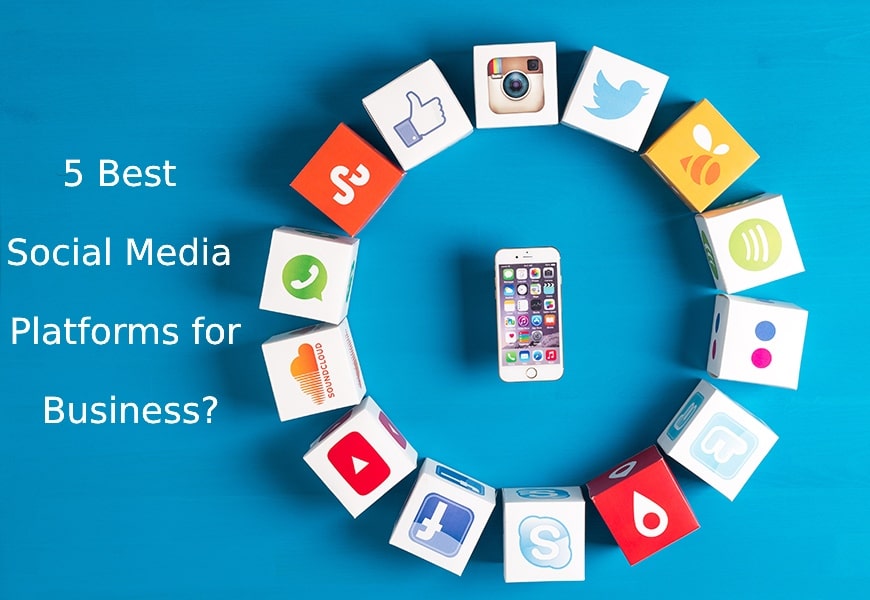Blockchain technology has been making waves across various industries, and the gaming sector is no exception. Decentralized gaming experiences empowered by blockchain technology have opened up new possibilities, revolutionizing the way games are created, played, and monetized. In this article, we will explore the potential of blockchain technology in gaming and how it is transforming the industry.
How blockchain technology revolutionizes gaming
Blockchain technology brings several key advantages to the gaming world. Firstly, it offers transparency and immutability, ensuring that game transactions and actions are recorded on an immutable ledger that cannot be altered. This eliminates the risk of fraud and provides players with a high level of trust and security.
Moreover, blockchain enables true ownership and control of in-game assets. Through the use of non-fungible tokens (NFTs), players can have unique and verifiable ownership of their virtual items, characters, or collectibles. This ownership extends beyond the game itself, allowing players to trade or sell their assets in a secure and transparent manner.
In addition to ownership, blockchain technology enables the creation of in-game economies. Developers can design game mechanics that incorporate cryptocurrencies or tokens, allowing players to earn rewards, trade assets, or even create their own virtual businesses within the game world. This adds a new layer of depth and engagement to the gaming experience.
Furthermore, blockchain facilitates interoperability and cross-game functionality. With the use of standardized protocols, players can transfer assets or characters between different games, creating a seamless gaming experience across multiple platforms. This opens up opportunities for collaboration and cross-game interactions, enhancing the overall gaming experience.
Blockchain game development process
To create decentralized gaming experiences, developers utilize smart contracts and NFTs. Smart contracts are self-executing contracts with predefined rules and conditions, which are automatically enforced on the blockchain. They enable developers to implement complex gameplay mechanics, in-game economies, and asset ownership rules.
Creating game assets on the blockchain involves tokenizing them as NFTs. NFTs are unique digital tokens that represent ownership or proof of authenticity of a particular asset. These assets can range from characters and items to virtual real estate or even entire game worlds. By tokenizing assets, developers ensure their scarcity, uniqueness, and provable ownership.
Integrating blockchain into gameplay mechanics requires careful consideration of the user experience and scalability. In the process of blockchain game development Developers need to strike a balance between the benefits of blockchain technology and the performance requirements of the game. Efficient solutions such as layer-two scaling or sidechains can help mitigate scalability challenges and ensure smooth gameplay.
Benefits of decentralized gaming experiences
Decentralized gaming experiences offer numerous benefits to both players and developers. One of the key advantages is player ownership and monetization. With blockchain technology, players have true ownership of their in-game assets, allowing them to monetize their virtual investments. This can be through selling assets, participating in the game’s economy, or even renting out virtual properties.
Blockchain technology also reduces fraud and cheating in games. Since all transactions and actions are recorded on an immutable ledger, cheating becomes extremely difficult, if not impossible. This fosters fair gameplay and ensures that players are rewarded based on their skill and effort.
Moreover, decentralized gaming experiences enhance player-to-player interactions. With blockchain-based marketplaces, players can easily trade or sell their assets directly to other players, fostering a sense of community and engagement. This peer-to-peer economy opens up new avenues for social interactions and collaborative gameplay.
For developers, decentralized gaming experiences present new revenue streams. Through the creation of in-game economies and the sale of assets or virtual services, developers can generate revenue beyond traditional game sales. Additionally, developers can engage players through token rewards or crowdfunding mechanisms, allowing the community to participate in the game’s success.
Challenges and considerations in decentralized gaming
While decentralized gaming holds great potential, there are several challenges that need to be addressed. Technical hurdles, such as scalability and performance, are crucial considerations. Blockchain technology is still evolving, and ensuring smooth gameplay and handling a large number of transactions in real-time can be a significant challenge. Continued research and development are necessary to overcome these hurdles.
Regulatory and legal challenges also come into play. As blockchain technology disrupts traditional gaming models, regulators and lawmakers are grappling with its implications. Clear guidelines and regulations need to be established to ensure the legality and compliance of blockchain-based games, especially regarding the ownership and trading of virtual assets.
User adoption and education are essential for the success of decentralized gaming experiences. Blockchain technology can be complex for the average player, and educating users about the benefits and mechanics of decentralized games is crucial for widespread adoption. User-friendly interfaces and onboarding processes can help simplify the user experience and attract a broader audience.
Furthermore, sustainability and environmental impact are important considerations. The energy consumption of blockchain networks, especially proof-of-work mechanisms, has raised concerns about the ecological footprint of decentralized gaming. Exploring more energy-efficient consensus mechanisms and offsetting environmental impact will be key to ensuring a sustainable future for blockchain-based games.
Examples of blockchain-based games
Several successful blockchain-based games have demonstrated the potential of decentralized gaming experiences. CryptoKitties, one of the first blockchain games, allows players to collect, breed, and trade virtual cats. Each cat is an NFT, and their unique traits and characteristics make them highly sought after in the game’s marketplace.
Axie Infinity is another popular blockchain game that combines elements of creature collecting, battling, and trading. Players can own and breed Axies, which are digital pets with unique characteristics. Axie Infinity has gained significant attention for its play-to-earn model, allowing players to earn real income by participating in the game’s economy.
Gods Unchained is a blockchain-based trading card game that provides players with true ownership of their digital cards. By utilizing NFTs, players can collect, trade, and sell their cards on the blockchain, creating a vibrant marketplace. The game has attracted a passionate community and has hosted high-profile tournaments with substantial prize pools.
The Sandbox is a virtual world where players can create, own, and monetize their gaming experiences. Built on blockchain technology, The Sandbox allows players to design and trade virtual assets, collaborate with other players, and participate in the game’s economy. The platform offers a creative and immersive decentralized gaming experience.
Future prospects of decentralized gaming
The future of decentralized gaming holds exciting possibilities. Integration with virtual reality (VR) and augmented reality (AR) can create immersive and interactive gaming experiences. Players can explore virtual worlds and interact with blockchain-based assets in a more immersive and realistic manner.
Enhanced cross-platform experiences are also on the horizon. Blockchain technology can enable seamless interoperability between different gaming platforms, allowing players to carry their assets, achievements, or progress across games. This cross-platform functionality enhances convenience and encourages player engagement across multiple games.
Collaboration and interoperability among games are key trends in decentralized gaming. Blockchain technology allows for the creation of shared game universes, where different games can coexist and interact with each other. This opens up possibilities for cross-game quests, shared economies, and collaborative gameplay, offering players a truly interconnected gaming experience.
Mainstream adoption and industry growth are inevitable as decentralized gaming continues to evolve. As more developers embrace blockchain technology and create compelling gaming experiences, mainstream players will become increasingly familiar with decentralized games. This growth will lead to more investment, innovation, and opportunities within the decentralized gaming industry.
Conclusion
Blockchain technology is transforming the gaming industry by creating decentralized gaming experiences. Through transparency, ownership, in-game economies, and interoperability, blockchain is revolutionizing how games are created and played. While there are challenges to overcome, the benefits of decentralized gaming, such as player ownership, reduced fraud, enhanced interactions, and new revenue streams, are driving the industry forward. With the integration of emerging technologies and the growth of the blockchain gaming ecosystem, decentralized gaming is poised for a promising future.
FAQs
1. What is decentralized gaming?
Decentralized gaming refers to gaming experiences built on blockchain technology, where ownership, control, and in-game economies are governed by smart contracts and NFTs. It provides players with transparent, secure, and immersive gaming experiences.
2. How does blockchain technology benefit gaming?
Blockchain technology brings transparency, immutability, ownership, and in-game economies to gaming. It enables players to truly own their virtual assets, trade with others, and participate in the game’s economy. Blockchain also reduces fraud and cheating, fostering fair gameplay.
3. Are there any successful blockchain-based games?
Yes, several blockchain-based games have gained popularity. Examples include CryptoKitties, Axie Infinity, Gods Unchained, and The Sandbox. These games utilize blockchain technology to provide unique and engaging gaming experiences.
4. What are the challenges of decentralized gaming?
Challenges in decentralized gaming include technical hurdles, regulatory considerations, user adoption and education, and sustainability. Scalability, legal frameworks, user-friendly interfaces, and energy consumption are among the key challenges that need to be addressed.
5. What is the future of decentralized gaming?
The future of decentralized gaming looks promising. Integration with VR and AR, enhanced cross-platform experiences, collaboration among games, and mainstream adoption are some of the trends that will shape the future of decentralized gaming. The industry is expected to continue growing and evolving.





